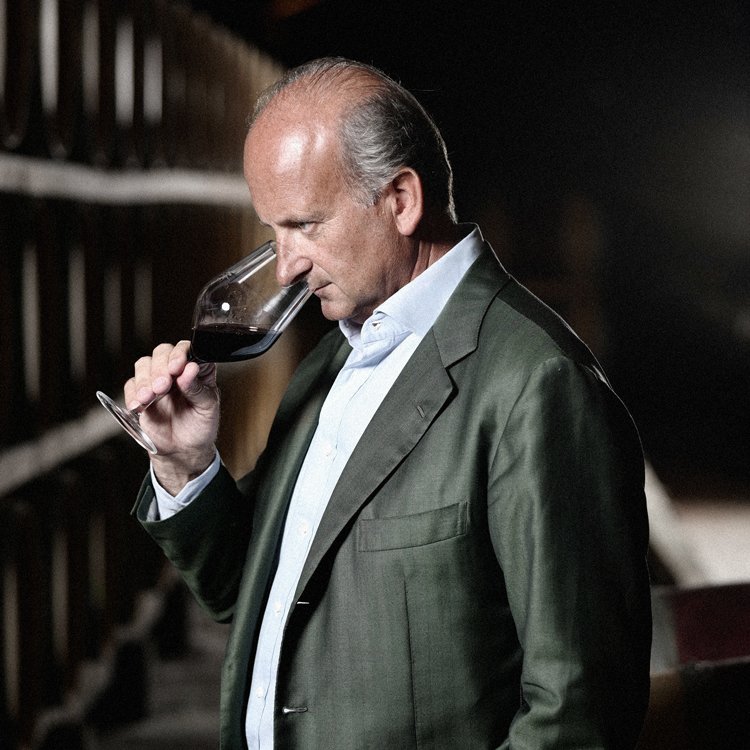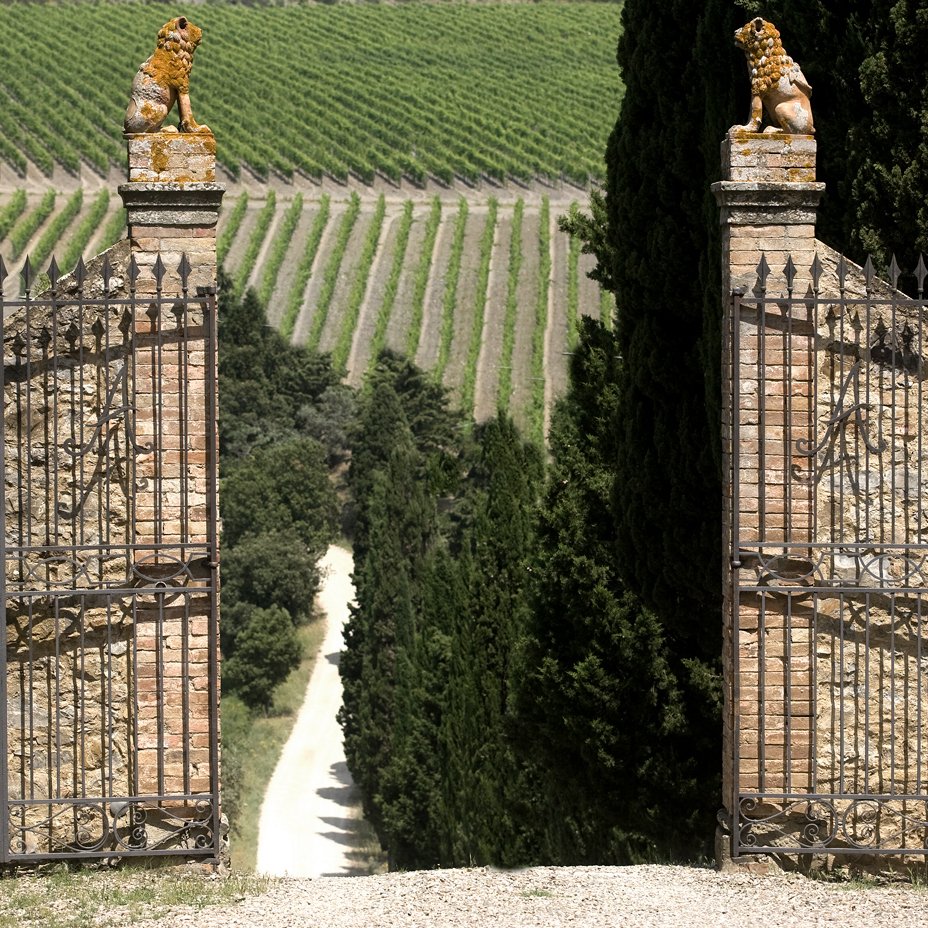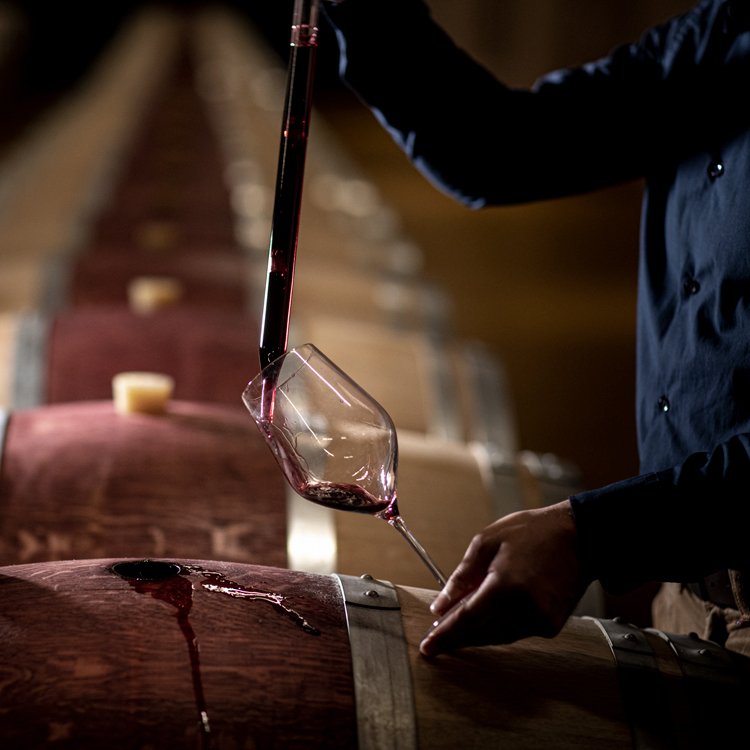▻ Marchese Lamberto Frescobaldi
In conversation with Marchese Lamberto Frescobaldi
““If you fall in love with the past, you are going to be stuck in the past, and someone is going to go faster than you.””
Episode Summary:-
The Frescobaldis are one of Italy’s most illustrious families. Originally Florentine bankers, they financed numerous ventures for European royalty, including King Edward 1st of England. They have been producing wine in Tuscany since the 13th century, and Marchese Lamberto Frescobaldi is the 30th generation of his family to make wine; he is currently President of Marchesi de’ Frescobaldi and the Vice President of the Italian Winegrowers Association.
He talks to Sarah Kemp about his life, growing up on the family estates, where he enjoyed the freedom of the vineyards and the cellar. He describes how he knew he wanted to study agriculture, but his love of wine came a little later when he went to America. Wine was not the luxury product it is today--after the war people wanted milk, wheat and meat, not wine. Lamberto talks about how people began to leave agriculture at the end of the ‘50s, when over 70% of Italy was involved in farming – in 2010 it was 2.4%.
When he was 22 years old, his father suggested he study at UC Davis in California, which he notes was extremely generous, as the exchange rate for the lire to the dollar was very expensive. He imagined beaches and bikinis, but found there were none in inland and suburban Sacramento. Despite being disappointed by the lack of beaches, he loved his time at UC Davis, which was so advanced that it was “like going to the moon” he confides.
“What really opened my mind to wine was working for Darrell Corti,” Lamberto tells Sarah. He talks about how he found that grocers Corti Brothers sold the family wine, and Darrell Corti asked Lamberto to hold a tasting for him. Shortly afterwards Darrell hired Lamberto to work in the store on Saturdays and Thursday evenings, when there were always wine tastings. “He understood I had no idea what was wine,” and it was through him that Lamberto was introduced to Lafite, Mouton, wines from Argentina, Russia, Spain. He decided that the family wines could do better.
After returning to Italy to do his national service, he joined the family to look after vineyard investments. He tells Sarah how he changed the spacing between the vines after advice from a professor from Montpellier who advised a return to the patterns before the 1950s. The spacing had become wider due to the Fiat tractors, so Lamberto replanted the vines and brought in a small German tractor, as there weren’t any that were small enough then available in Italy--3,000 acres were replanted, and the wine’s quality soared. He talks about how the two major wine scandals in Austria and Italy were beneficial in pushing producers towards quality, and that from 1986, wine took on more importance, with the press starting to write about it and wine tourism opening up.
Luce, the joint venture with the Mondavi family from the Napa Valley, saw Lamberto as joint winemaker with Tim Mondavi on Italy’s first Italian/American joint venture. Luce is a blend of Sangiovese and Merlot. He explains how they decided to collaborate: “if we do it together it is because we want to learn something,” they agreed. Lamberto talks fondly of his time working with Tim Mondavi and how he bought back the Mondavi shares when Constellation bought the company. He discusses with Sarah the role of international varieties in Italy, and explains how what is planted is related to the economic climate of the day.
One of his singular achievements is another partnership, between Frescobaldi and the prison authorities of Gorgona Island, off the east coast of Italy. He tells Sarah how he received an email asking for help in improving their vineyards. He took a boat to the island where he met them, and decided to participate. When he asked the Governor why she chose him, she revealed she had written to over 100 wineries, but that he was the only one who replied. Lamberto talks about how the inmates earn a wage working in vineyards there, and making wine, and that when they leave the gaol, they are able to start new lives, contributing to society. Today they make 8000 bottles annually, and Sarah, who has tasted the wine, agrees with Lamberto that it is very good.
Lamberto concludes by telling Sarah that his proudest moment is yet to come, but he would like his children to always be open-minded, to never stop searching and, “When you travel, always in your suitcase leave some empty space for some new ideas to take home.”
Running Order:-
-
0.00 – 12.26
“When I went to America I fell in love with the product.”
– Lamberto’s childhood in Tuscany.
– How wine became quite important in the ‘80s.
– Life in Tuscany in the ‘60s and ‘70s.
– Italy’s change from an agricultural society to an industrial one. -
12.27 – 18.30
“What really opened my mind to wine was working for Darrell Corti.”
– How his father persuaded him to go to UC Davis.
– Getting a Saturday job with Darrell Corti and learning about wine. -
18.31 – 25.00
“In 1985 we almost went broke.”
– Lamberto returns to Italy and after National Service becomes responsible for vineyard investments.
– Changing the spacing in the vineyards and replanting.
– How two scandals helped producers turn to quality winemaking. -
25.01 – 32.35
”Bob encouraged his kids, Michael, Tim and Marcia, to do something beyond Opus One.”
– Lamberto discusses how the joint venture with the Mondavis began.
– Working with Tim Mondavi.
– Lamberto’s view on international varieties in Tuscany. -
32.36 – 38.32
“Why me?” “Because you were the only one who answered.”
– How Lamberto came to work with the prisoners on Gorgona Island making wine.
– His first visit to the prison and the reaction of the prisoners to wine tasting.
– Why Lamberto was chosen to help. -
38.33 – 42.31
“The world of fine wine is made of fine people that are always curious to see what is outside.”
– Lamberto’s biggest challenges ahead.
– Lamberto’s advice to his children “never stop searching”.
RELATED POSTS
Keep up with our adventures in wine









Hannes Myburg talks to John Stimfig about running the iconic South African Meerlust estate, which is celebrating its 50th vintage.